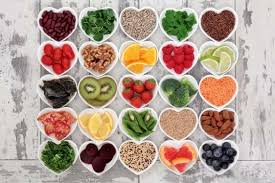As February rolls around and red hearts and roses pop up everywhere, it is impossible not to think about relationships, especially those closest to us that qualify in our minds as a “valentine”. So what could a nutritionist have to say about relationships???
As with all of our choices, what we eat is influenced by many factors from education, experience, beliefs, emotions, and yes, the influence or opinions of others. The actual reasons why you eat what you eat may not be based at all on what is best for your unique body but factors influencing you from many angles. It is a worthwhile exercise to examine how your relationships impact what you decide to eat… Here are some examples where a relationship had a bearing, good or bad, on what was eaten:
- A mother raises her child eating real food, no sugars, no junk, no processed food. The child grows up to enjoy healthy choices and reject poor choices.
- Your best friends tell you “you’re no fun” when you attempt to decline dessert.
- Your sister knows you are terribly upset so comes over with two pints of ice cream and two spoons.
- Your wife is a very healthy eater and refuses to keep junk in the house or buy it. So all of your meals at home help to keep you healthy and trim.
- Your neighbor heard you were sick so brought over lasagna, rolls, salad and dessert for the family.
- You try to eat healthy, make wise choices and prepare good food for your family but every meal your spouse or teenager rolls his or her eyeballs and comments about this “dumb kick you are on”.
- The family only eats 4 dinner menus because they are the only ones everyone in the family enjoys.
- Your husband knows you struggle with your weight and work hard to keep it off and look great for him. He skips the heart shaped box of chocolates on Valentine’s Day and writes a love letter and cooks you a healthy meal at home with candle light and kisses.
We’ve all read articles or books about healthy relationships. We all know that good communication and mutual respect are two of the fundamental starting points for a good relationship. I believe this is true when it comes to improving our diets and overall health and nutrition. We consume most of our food with people we love. It goes to say then that if you need to change what you are eating to gain health, be well, heal, lose or maintain a healthy weight, you will have to address the relational aspects of the food you eat. Often, this is one of the hardest obstacles to making lifestyle changes because it requires effective communication of your needs, the request for respect and support from others and, finally, often others need to change their habits for your benefit. These challenges are often one of the reasons that lifestyle changes are better made slowly over time, so that everyone can get on board together.
Here are a couple of tips to help you and your loved ones nourish your relationships with each other and your food choices:
- Remember that we are all unique right down to our genetic variances when it comes to our needs for nourishment, even within the same family. Don’t assume everyone needs exactly the same foods and portions. Respectfully help everyone close to you find their own pathway of foods that make them feel their best and respect their differences from yours. Ask them to do the same for you.
- Listen to your body to determine your nutrition needs. Everyone else’s opinion, the latest article on the internet, or food industry products is not putting your best and unique needs first. No one can hear what your body is saying better than you can.
- Listen to your body rather than your emotions. Eating to please someone else, or to avoid a conflict or to numb yourself from your feelings leads to destructive eating habits. Often times this is where you have to press through the immediate satisfaction for the long term reward. If you can do it a couple of times, you begin to renew your own self-respect and yearn for the success that comes from the discipline.
- Don’t be afraid to tell others what you need from them. Offer suggestions to friends and loved ones about how to help you and be specific about what does not help you. Once my friend explained to her husband that she knew the gesture of the box of chocolates was well meaning but it caused her to be terribly tempted every day until the chocolates were gone, caused weight gain and then guilt, he understood that the end result was not what he had hoped to deliver at all.
- Wherever possible, prevent others from making your food choices for you. Take ownership of what you put in your mouth. Don’t blame others for the food you eat. You are the only person who determines what goes in your mouth, so own the responsibility for your nutrition, body and your health.
- Ask others not to comfort or love you with food. Find out what your love language is (http://www.5lovelanguages.com/profile/) and when you need love or comfort, suggest to others that you would like words of praise, a hug, encouragement, affirmation, an act of service or a non-food gift.
- Recognize that others can have ulterior and selfish motives for saying what they say to you or sabotaging your efforts to get healthy, lose weight or change your diet. They may simply not want to join you in your journey. Avoid being manipulated or controlled by others when it comes to what you eat. Mutual respect is important in every healthy relationship. You are worthy of respect.
- Set the example. When your friends come to your home, or you are asked to bring something, provide healthy food choices rather than what you think they expect or want so that they can begin to see how good healthy eating can feel and be. Leading by your example is the most powerful way to influence change in others’ lives.
Respect your body. Nourish yourself well. Then love, respect, and nourish each other. Happy Valentine’s Day!


